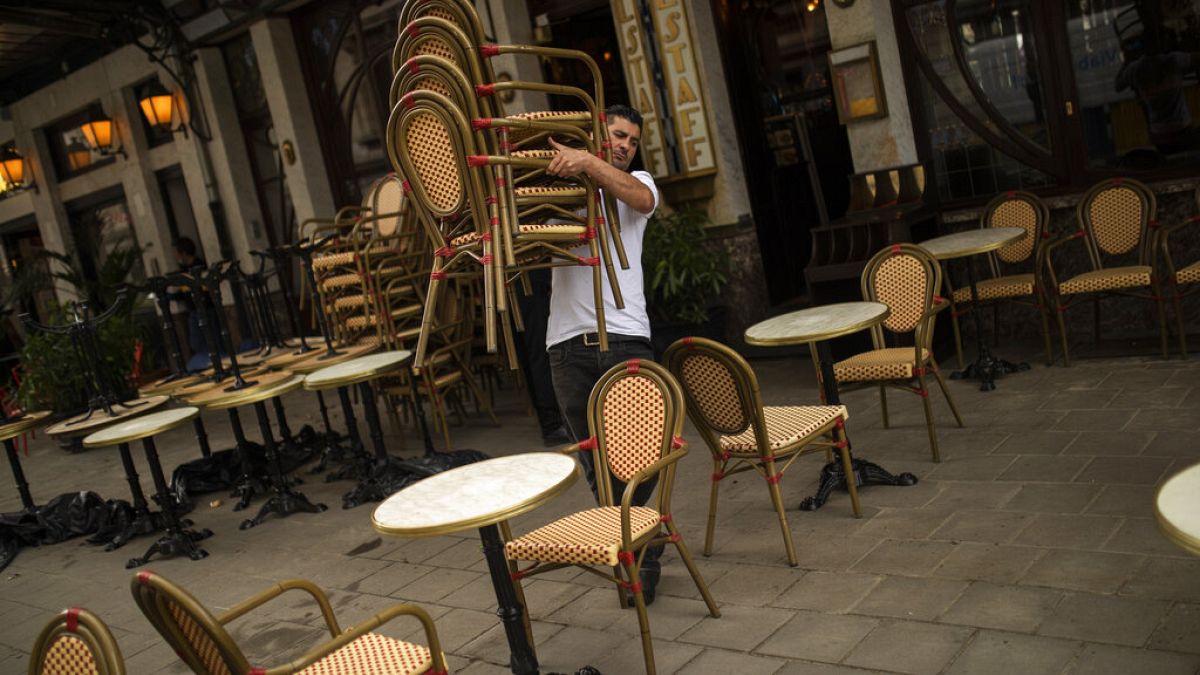Euronews' political editor Darren McCaffrey on how COVID-19 has changed the restaurant experience in Brussels.
At the end of April, I indulged in a bit of speculation about what it would be like to eat out again when restaurants finally reopened.
Well, in Brussels yesterday they did and I pretty quickly booked myself into Bogarts, a small, independent, family-run Italian restaurant close to my flat that had only opened late last year.
I was genuinely a little apprehensive. I love eating out. It is not just the food but the experience, the company, the atmosphere. I was concerned all that would be blunted by the new measures imposed to ensure coronavirus risks remain low.
I should not have worried. Yes, I had to book in advance online, but many of us have been doing that for years. Tables were spaced out, 1.5 metres apart, and there were fewer of them. The waiters wore masks, the menu presented on a chalkboard. But as I sipped my crisp white wine and enjoyed the pesto pistachio spaghetti with prawns - sounds tasty, right? - the whole experience seemed delightfully familiar.
If anything, with fewer tables and fewer customers, we all had more room, tables weren’t tightly packed together, the service was better. At the end, our payment was by card, paid for at the counter rather than at our table.
The past few months have proved almost ruinous for the hospitality industry. With no customers, many have struggled to stay afloat, even with government help. The Belgian government is exploring giving all its residences €300 worth of vouchers this summer that can only be used in restaurants to help entice people back. They are already cutting VAT. Measures like these will help but many bar owners and restaurateurs fear that, as long as social distancing measures remain in place, they simply won’t be able to return a profit.
It is not just bars and restaurants. Shops, hotels, airlines and others are worried, too, that the new normal means they won’t be able to survive. But there is good news - consumer confidence seems to have rebounded. Yes, there is clearly pent up demand but most seem willing to venture out and open their wallets weeks after lockdowns have ended. Hotels are starting to take bookings and airlines are even seeing seats sell.
We have all thought about how the coronavirus crisis might change the world. But will it? In most places the lockdowns or confinements lasted less than three months, and three months really doesn’t seem long enough to change habits of a lifetime.
The future remains uncertain but as I walk around Brussels today, with shops, cafes and offices reopening, the new normal looks remarkably similar to the old one.
Darren McCaffrey is Euronews' political editor.
If you would like to stay up to date with Euronews' coverage of the coronavirus crisis, please sign up to our newsletter, below.
